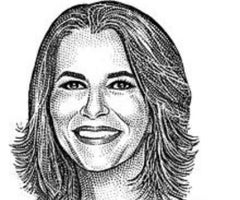MI SELECCIÓN DE NOTICIAS
Noticias personalizadas, de acuerdo a sus temas de interés

By Mary Anastasia O’Grady
Venezuelan dictator Nicolás Maduroreportedly released 59 political prisoners Saturday, ahead of unconfirmed press reports that new talks with Venezuela’s democratic opposition will soon begin somewhere in the Caribbean, perhaps in Barbados.
This is straight out of Cuba’s playbook. Freeing hostages is what the Castro regime does when it wants to claim good faith. Never mind that it rounds up innocent people every day and always has bodies to trade when it wants to negotiate something.
Cuba created and sustains the bloody authoritarian regime in Caracas. Now it is employing the same tricks there that it has used to survive for six decades at home.
There are plenty of other warning signs. Rumors have surfaced that Cuban sympathizers with business interests on the island are working Capitol Hill, telling Congress that Havana ought to be part of a negotiated “solution” in Venezuela.
The suggestion that Cuba could serve as a mediator in Venezuela is preposterous. But Havana badly needs oil shipments from Mr. Maduro, and it wouldn’t be the first time that unscrupulous businessmen carried water in Washington for the Castros. Nor is it the first time that Cuba has taken its propaganda campaign to the U.S. capital.
Equally galling is the effort to style the Maduro government as worthy of equal footing with the opposition. Somebody ought to blow the whistle on this charade before it’s too late. And it’s getting late.
The Cuban dictatorship is aided in its efforts by that great paragon of democratic advocacy, the United Nations. Last month Michelle Bachelet, U.N. high commissioner for human rights and a Chilean socialist who admires the late Fidel Castro, went to Venezuela. She didn’t meet with political prisoners, she didn’t visit even one hospital, and she never left the capital.
She acknowledged that the opposition had suffered terrible injustices. But she was quick to cite the case of a government supporter who had also been a victim of violence. In other words, both sides are at fault.
Ms. Bachelet asserted that U.S. sanctions designed to force Mr. Maduro’s peaceful resignation are deepening the economic hardship. Among those who criticized her for that claim was secretary-general of the Organization of American States, Luis Almagro.
The record is clear that the socialist regime drove Venezuela into a ditch; billions of dollars were stolen. What little remains is spent on self-preservation. In a June 25 press briefing, the State Department’s special representative for Venezuela noted that in May the dictatorship signed a $209 million contract with the Kremlin that includes the purchase of nine Sukhoi jet fighters and eight transport helicopters. Oil subsidies still flow to Cuba. Meanwhile the population starves, gasoline shortages worsen, and diseases go untreated. Yet Ms. Bachelet told Venezuelans to make “bold steps toward compromise.”
In fact, the team of opposition leader and interim President Juan Guaidó has held two rounds of talks in Oslo with the unelected military dictatorship. This has only encouraged the despot, as have two decades of on-and-off “dialogue” with Venezuelan democrats. The regime has used talking to maintain the illusion of civility and to buy time. The Obama State Department and the Vatican were especially tolerant of this game long after it was clear it was a fraud.
Mr. Guaidó ascended to the presidency in January, as prescribed in the constitution. More than 50 democracies around the world have recognized him as Venezuela’s legitimate leader.
But Cuban intelligence has proved formidable in protecting Mr. Maduro. Through its police-state tactics, well-honed for decades, it wields terror not only over civilians but over the rank and file of the military and its midlevel officers. An estimated 1,500 Venezuelan soldiers have fled the country. Hundreds of others are in beastly prisons because they are suspected of not being sufficiently committed to the dictatorship.
When African warlords engage in this kind of brutality, there’s an effort to try them for their crimes. But when a Cuban satellite does it, the U.N. tells the victims of the atrocities to negotiate with their tormentors and puts Cuba in charge. How else did Cuba become the lead “mediator” in talks between the terrorist FARC, which Havana nurtured for decades, and the Colombian democracy?
Mr. Guaidó thinks he protects himself by insisting Mr. Maduro must leave power before any new presidential election can be held and that negotiations are about releasing political prisoners and what a transitional government would look like. But his only weapon is reality laid out on the world stage. Talks undermine the truth, lend the war criminals legitimacy, and open the door to age-old Cuban manipulation.
Hungría deberá liberar alrededor de 250.000 toneladas de reservas si no se reanuda el flujo a través del oleoducto Druzhba en los próximos días
Perú lidera la región en control inflacionario, fortaleciendo el poder adquisitivo de los hogares y generando mayor previsibilidad para la inversión
Los socialdemócratas cogobernantes respaldaron una propuesta de los conservadores del canciller Friedrich Merz